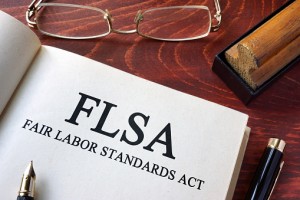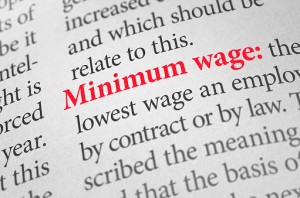 Insurance companies have a duty to negotiate in good faith. This duty extends to homeowners, auto owners, business owners, and anyone who has a right to expect payment from their insurance company when an accident or catastrophe strikes. When someone demands payment from their carrier, it is known as a first-party claim. When an individual seeks to have the insurance company or someone else pay damages, it is called a third-party claim.
Insurance companies have a duty to negotiate in good faith. This duty extends to homeowners, auto owners, business owners, and anyone who has a right to expect payment from their insurance company when an accident or catastrophe strikes. When someone demands payment from their carrier, it is known as a first-party claim. When an individual seeks to have the insurance company or someone else pay damages, it is called a third-party claim.
Insurance companies in both first- and third-party claims must fully investigate claims and make fair settlement offers. They cannot raise invalid defenses or stall just to pressure the claimant into making a fast settlement. Insurance companies cannot misrepresent the facts or use biased experts.
What constitutes bad faith negotiation?
Tennessee bad faith attorneys bring claims against insurance companies who refuse to do their duty. The following types of conduct may qualify as bad faith:
- Failing to give a reason for denying a claim. Insurance companies should provide a factual or legal reason for refusing to pay a claim.
- Failing to promptly investigate the claim. When there is damage to any property, such as a home or car, the insurance carrier should typically request to see the property/car or, at least, see pictures of the damage. If you have witnesses who support your claim, the carrier should speak to the witnesses. Insurance companies should also work to examine the cause of the accident.
- Offering less then the full value. If a home is damaged in a fire and the cost to repair it is $200,000, assuming there is sufficient coverage, the insurance company cannot offer $100,000 if no defenses apply.
Other examples of bad faith insurance practices include refusing to provide documentation that would support the plaintiff’s claim, changing adjustors to delay payment, or asserting policy exceptions that do not apply.
When insurance companies negotiate in bad faith, they can be ordered to pay a bad faith penalty. The carrier can also be required to pay the full amount of the damages. To work with a Tennessee bad faith attorney like Clint Scott, Brandon McWherter or Jonathan Bobbitt, please call the Gilbert Firm at 888.996.9731, or use our contact form. We have offices in Nashville, Chattanooga, Memphis, Jackson, and Knoxville.
 You buy homeowners’ insurance for the same reason you buy any kind of insurance policy: to protect you in the event of a misfortune of some kind. While there is no such thing as a “one size fits all” insurance policy, homeowners’ usually covers the following:
You buy homeowners’ insurance for the same reason you buy any kind of insurance policy: to protect you in the event of a misfortune of some kind. While there is no such thing as a “one size fits all” insurance policy, homeowners’ usually covers the following: A new administration always brings changes, but the recent revival of the Holman Rule has raised a few eyebrows. As the
A new administration always brings changes, but the recent revival of the Holman Rule has raised a few eyebrows. As the  In March of 2014, The Tennessean
In March of 2014, The Tennessean  The holiday season is upon us, which means some of you are going to have a lot of people running around your houses pretty soon. Big parties and holiday dinners are fun, but they can also lead to property damage. The most likely culprit? A house fire – but slippery walkways and anxious pets can lead to claims, too.
The holiday season is upon us, which means some of you are going to have a lot of people running around your houses pretty soon. Big parties and holiday dinners are fun, but they can also lead to property damage. The most likely culprit? A house fire – but slippery walkways and anxious pets can lead to claims, too. We recently ran across a news story out of Denver about a dispute between a homeowner and her homeowners’ association (HOA), over a particularly bright green paint. At the very end of the piece, the
We recently ran across a news story out of Denver about a dispute between a homeowner and her homeowners’ association (HOA), over a particularly bright green paint. At the very end of the piece, the  The whole point of homeowners’ insurance is to protect you in the event of damage to your home. Whether there was a fire, or a flood, or wind damage, etc. – you call your agent, he or she helps you make a claim, and then you get paid out so you can fix your home. Should be easy enough.
The whole point of homeowners’ insurance is to protect you in the event of damage to your home. Whether there was a fire, or a flood, or wind damage, etc. – you call your agent, he or she helps you make a claim, and then you get paid out so you can fix your home. Should be easy enough.